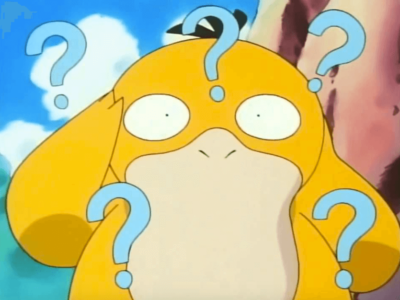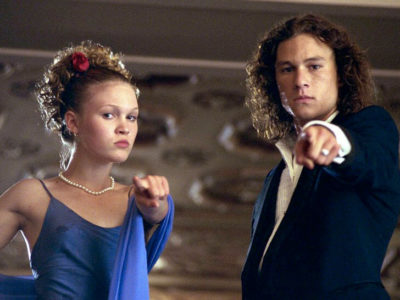Think about how many applications you’ve filled out recently. Forms to apply for clubs, schools, jobs, volunteer events… It seems like every single activity we want to participate in today requires not only the completion of an application, but the exclusive acceptance of it as well.
The moment you inquire about a new activity, you receive a daunting list of demands necessary in exchange for the consideration of your profile. Essays, cover letters, resumes, references and portfolios—your eyes quickly glazing over as you take in the list of necessary materials.
As a junior in college, I think it’s safe to say that I know my way around an application. Saved on my laptop, I have three different versions of my resume at the ready. One is colorful, another is very simple, and the last one is tailored specifically to journalism-oriented positions. I’ve spent hours and hours writing cover letters, only to scrap them and start over again. In theory, a cover letter is fairly simple. It’s supposed to give a potential employer a peek into my experience, motivations and personality. We do it everyday when we meet new people. Yet, for some reason, transforming this ordinary act of familiarization into a written document is baffling. I worry not only about the content, but also about the margin size, the spacing, the punctuation, the grammar… Just about everything I’ve learned since my first grade language arts class.
I went through a period during which I obsessively took advantage of the career center’s “drop-in hours” in the fall of my sophomore year. All anyone talked about was the internship they’d lined up for the summer. In retrospect, they also definitely discussed a million other things, but I only registered the internship talk. I had a breakdown or two—maybe three. You know, one of those really fantastic, all-out crying sessions college girls excellently pretend don’t happen. Then, I discovered this enchanting office of advisors who would take the time to sit with me and provide me with at least a kernel of guidance.
Now, whether or not I’m actually any good at this whole application process now is certainly questionable; however, I have no doubts about the ground rules of the process:
Don’t write anything too controversial.
Show off, but do so in a humble fashion.
Make it unique enough to stand out, but still professional-looking. Come across as friendly, but not casual.

Anyone else confused? Annoyed? Frustrated? Sweating?
I am.
This is our idea of perfection. It’s mysterious, intangible, contradictory and straight up impossible to fully comprehend—let alone achieve.
I have no idea where that hairline falls between unique and professional. Who does? And, if everyone did, wouldn’t we all just consider that to be the new professional standard?
So that whole world of showcasing myself in the most desirable manner is one half of my life. Much like a thoroughbred, I do my best to appear pleasing in the surface-level sense, while also more than capable in its line of work. For a horse, that would be the physical ability to win a race, while for me, it’s probably the competence to file papers and answer phones. But there is a degree of similarity. Regardless, the existence of this exhibited half of my life indicates that I have a entirely different second half. That half pushes me to embrace my faults and weaknesses. My “controversial” bits.
This is the side where my family, boyfriend, best friends and retreat leaders fall. All of these individuals remind me daily that they love me because of all of my little quirks, as well as my skills. For instance, they appreciate my daily struggle to do basic math and my insatiable passion for writing. I’ve been told in countless school lectures how important it is to “be myself.” I think we all have since we were in elementary school.
Throwback to our childhood anthem sung by the one and only…
So, which side are we supposed to follow? The people who will love us and surround us as we grow old? Or that stepping-stone job you’re planning on staying at for less than two years?
It’s so easy to say you’ll follow the former. Of course we all just want to “be ourselves,” and most American colleges try really hard to communicate that message to us. But, they do so while simultaneously emailing us more applications for clubs, internships, service, etc. It’s unavoidable. They want us to succeed, and we want to succeed.
So here we are, dragged back down to the grassy campus quad with every other ambitious young adult. Torn between these two forces of perfection and individuality.
Right about now, you’re probably expecting some sort of grand conclusion—a sweeping statement of advice. Well, unfortunately, one thing I am sure of is that I don’t know. I don’t know what to do. And I am also sure that not knowing is completely fine.
I’m only 20 years old. One of the hardest things I’ve come to terms with is the notion that I simply do not know the answer sometimes.
I will continue to fill out those applications, following my basic guidelines so as to present myself in the most desirable, perfect way possible—whatever that means. But, I’ll still smile to myself every time my best friend mocks me about my awful parking skills or my ability to do high school math, because I know that later she’ll compliment me on the meal I cooked up for her for dinner. None of these characteristics—whether they are strengths or weaknesses—appear on an application. But I think they’re larger parts of who I am in everyday life.
Thus, I’ll continue on in this purgatory, just like all of you. Privileged enough to be on a campus where the conversation about imperfection thrives, but halts the moment you step into the career center.

















